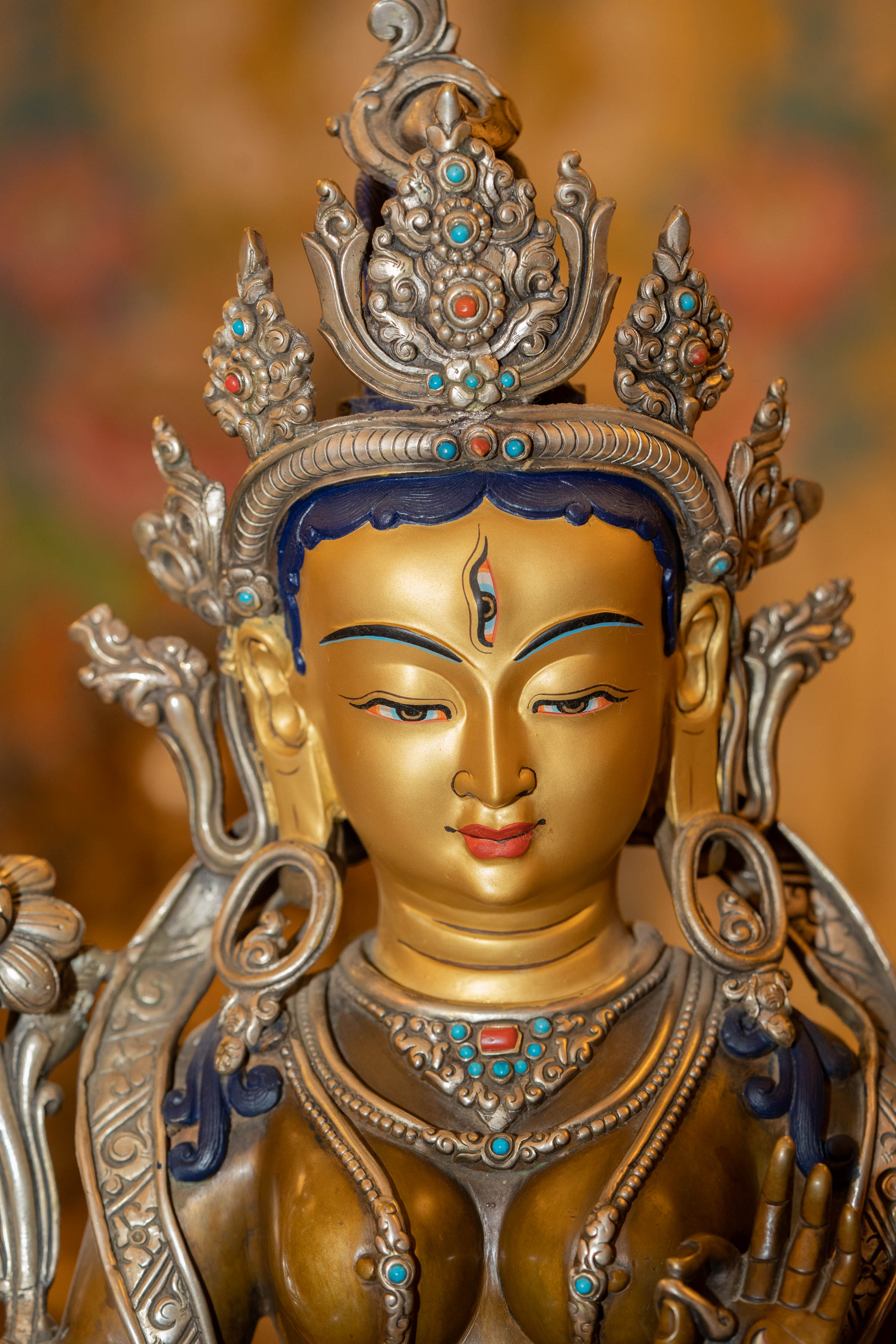A bodhisattva is an individual who has committed themselves to a Buddhist practice that leads to the enlightenment of all sentient beings and has committed themselves to this by taking vows to practice bodhicitta. Bodhicitta is a commitment to act for the benefit of all beings. It can be aspirational, actionable or ultimate (meaning an innate expression of our Buddha nature). In Tibetan Buddhism, there are various levels of bodhisattvas based on their achievements. Not all bodhisattvas achieve enlightenment in one lifetime but that is the goal. It is true that some of those who could move into a completely non-dualistic state, enlightenment, may hold back in order to help all sentient beings achieve this state.
This other, more esoteric definition of a Bodhisattva is one who, having achieved enlightenment, remains on the cycle of samsara to act as a teacher and promote enlightenment for all sentient beings. Because this Bodhisattva has achieved enlightenment then their expression in samsara is of infinite quality. In other words, they may go recognized as a reincarnated Lama or unrecognised, not leaving any instruction for their discovery and so may return as your neighbour or your neighbours dog. They are perceived in the manner most helpful to the perceiver.
What is Bodhichitta (SPIRIT OF ENLIGHTENMENT or The Awakening Mind) ?
The basic definition of bodhicitta is "the desire to realize enlightenment for the sake of others." It is also described as the state of mind of a bodhisattva, usually, an enlightened being who has vowed to remain in the world until all beings are enlightened
Teachings about bodhicitta (sometimes spelled bodhicitta) appear to have developed in Mahayana Buddhism about the 2nd century CE, give or take, or about the same time the Prajnaparamita Sutras probably were written. The Prajnaparamita (perfection of wisdom) sutras, which include the Heart and the Diamond Sutra, are primarily recognized for their teaching of sunyata, or emptiness.
Bodhicitta has come to be an essential part of Mahayana practice and a prerequisite for enlightenment. Through bodhicitta, the desire to attain enlightenment transcends the narrow interests of the individual self and embraces all beings in compassion. His Holiness the 14th Dalai Lama said,
"The precious awakening mind of bodhicitta, which cherishes other sentient beings more than oneself, is the pillar of the bodhisattva's practice" - the path of the great vehicle.
"There is no more virtuous mind than bodhicitta. There is no more powerful mind than bodhicitta, there is no more joyous mind than bodhicitta. To accomplish one's own ultimate purpose, the awakening mind is supreme. To accomplish the purpose of all other living beings there is nothing superior to bodhicitta. The awakening mind is the unsurpassable way to accumulate merit. To purify obstacles bodhicitta is supreme. For protection from interferences bodhicitta is supreme. It is the unique and all-encompassing method. Every ordinary and supra-mundane power can be attained through bodhicitta. Thus it is absolutely precious."
Ultimately, bodhicitta in all of its forms is about allowing compassion for others to lead us all to wisdom, by releasing us from the fetters of self-clinging.
List of Bodhisattva Deities in Buddhism:



